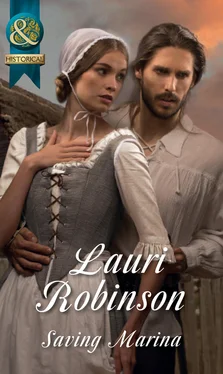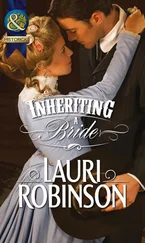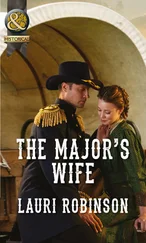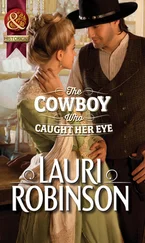If for no other reason than the things William was saying aligned with Richard’s own beliefs, he nodded. Changes were happening all around the world, and those not willing to accept that would never flourish. He’d used that fact, how sailing was his means to provide for his family, as an argument when Sarah’s father had insisted he needed to choose between the sea and his life as a married man. The two, his father-in-law had insisted, could not be one. Blasphemy. This very country had been settled by those escaping religious persecution and he hadn’t been about to become a victim of such unjust piety. Nor had he been willing to become a farmer.
“Salem Village was once the farming parish of Salem Towne,” William said, “but when those in Salem Towne began to prosper, the poorer farmers in the village grew resentful. They petitioned separation and the right to form their own community. They wanted their own church, too, and to hire their own minister, not one chosen by the Salem business owners. I figured things would settle down once that happened. It didn’t.”
“The new preacher you spoke of...” Richard said. His attention was spiked by the way Marina had started to fidget in her chair. She didn’t seem bored with the tale her uncle was unraveling. In fact, the way she wrung her hands together told him she was nervous about something her uncle might say. That was what Richard wanted to hear. Instincts said it included his daughter. Whoever had almost let his daughter starve would pay dearly.
“Yes,” William said. “I can’t say why they hired him. Samuel didn’t know. Samuel Godfrey, that is. He owns a store in town and only ventures out this way occasionally to deliver the things Marina orders from him. She and I don’t get out much.”
That too spiked Richard’s interest. William was old. Traveling even the short distance to town would be exhausting, but Marina was young. He saw no reason she couldn’t venture to town. “Why don’t the two of you get out much?”
William lifted both bushy brows. “Because we don’t want to lose everything, including our lives.”
Marina’s swallow was visible, as was the way she shook her head, trying to stop her uncle.
Richard quickly asked, “How would that happen?”
“They’d stretch our necks,” William said flatly.
The tree he’d seen earlier flashed before his eyes. “What for?”
“For being witches,” William said.
Chapter Three
Marina’s stomach fell and she closed her eyes. That was Uncle William, going on and on about differences that truly didn’t concern them and then bluntly cutting to the quick of the story. He didn’t believe she was a witch, despite the proof she offered. Holding her breath, she maintained her silence. For as unorthodox as her uncle’s home may be, there were still boundaries. He was the man of the household and she had to respect that, but if he started to share her story, she’d interrupt. There was no telling what the captain might do if he learned she was a witch.
When the two men refrained from speaking, and their gazes settled upon her, she stood. “Excuse me.” Perhaps if she reminded them as to why Richard was here, her uncle would get to the true heart of the matter. “I must see to the soup and check on Gracie. The sooner she gets well, the sooner she can travel to Boston.”
Marina left the room without a backward glance. Perhaps now Uncle William would tell the captain to return to Boston until Gracie was able to travel. That amount of time—until the child was well—had been granted, but she wouldn’t put it past Hickman to pay a visit to the house. He’d claim it was on behalf of the church, but she knew better.
After ladling broth into a bowl, Marina went out the back door to collect water from the well. The huge horse Richard had ridden stood next to the water trough she filled daily for the chickens. Back home, tending to the animals had been her chore, one her father prided her on, and seeing a creature uncomfortable didn’t settle well.
Nellie, their single cow in the paddock, bellowed a low welcome as Marina led the horse into the shade of the barn and reminded her she’d need to find a home for the cow, too. She also pondered removing the saddle from the horse’s back but, considering Richard would soon leave, chose against it. Her dream last night had shown Gracie healthy and was the most enjoyable one she’d had in months. Tending to the child the past few days had been extremely pleasurable. Something she’d always treasure.
Marina stopped that thought from going further—to babies that could never be—by focusing on settling the animal. The horse was frightfully large but gentle, and she patted its long neck and side while walking out of the stall wall. As she dropped the board in place to keep the animal stabled, a shadow cast upon the barn floor.
“So, you’re a witch.”
For the first time in ages, Marina wanted to smile. The image of this man, who was indeed as beastly in size as his horse, fleeing when she said yes was the cause. She’d seen that happen in Maine, grown men flee at the thought of encountering a witch.
The bright sun cast a haze of light around the frame standing in the doorway, from the toes of his knee-high boots to the top of his midnight-colored hair hanging past his shoulder. It made a remarkable sight, for his size and stature made him a formidable being. That told her something else. This man wouldn’t flee from a witch. Real or imaginable. He’d stand his ground.
Needing to know if that was true, she asked, “Do you believe in witches, Captain Tarr?”
“I’ve given you permission to call me Richard,” he said, bracing one hand against the door frame. “I’m only a captain while at sea.”
She gave a single nod, just to prove she’d heard him. “Do you believe in witches, Richard?”
He stood silent, making her wonder if he would answer or not. The breeze made the sleeves of his white shirt billow slightly, and for a moment she didn’t want to know his answer. The strength of the arms beneath that shirt had to be as solid as the rest of him. If he believed as the other villagers did, and chose to use his strength to capture her, she’d end up in Salem’s jail before assuring Grace and Uncle William’s escape.
“Witches,” he said, “are akin to angels. In some religions, that is. Some claim you can’t believe in one and not the other.”
Such a compromising answer was not what she’d expected. Discussing religious beliefs other than Puritan ones was illegal in the village and highly punishable. She considered telling him as much, but that in itself was punishable, as well. A man married to a Puritan woman would know such things and would not tempt punishment. As much as she’d relish the opportunity to debate her beliefs, to defend the holistic religion she’d participated in from birth, it would be a waste of breath. She doubted this man had ever read the Bible. She’d read it daily for as long as she could remember and sincerely missed having others to help her comprehend the parables. Uncle William was very little help with that. He did not see the connection between the Indians destroying her family and what was happening in the village.
She did.
She was a witch. There was no denying it. And no changing it. There was no comparing it to an angel, either. The two were as different as day and night. Alive and dead. Pure and evil.
Swallowing the bitterness that coated her tongue, for there were still things she had to accept, she nodded. “I didn’t unsaddle your animal. My hope is that Gracie will be able to travel by the end of the week.”
He stepped forward. “I’ll unsaddle him.”
Sidestepping in order to keep a fair amount of distance between them because his nearness made her insides tremble, she said, “I didn’t unsaddle him, so you could return to Boston. There is no need for you to remain here. You must realize Gracie can’t travel right now.”
Читать дальше












